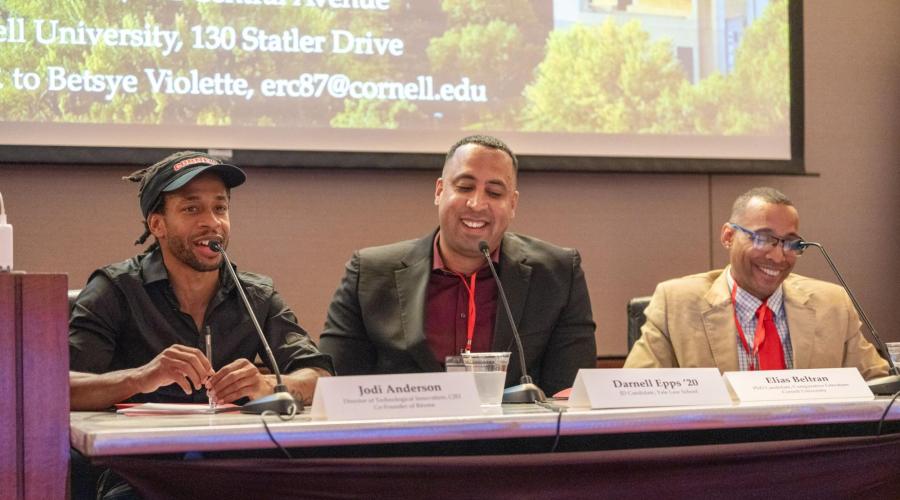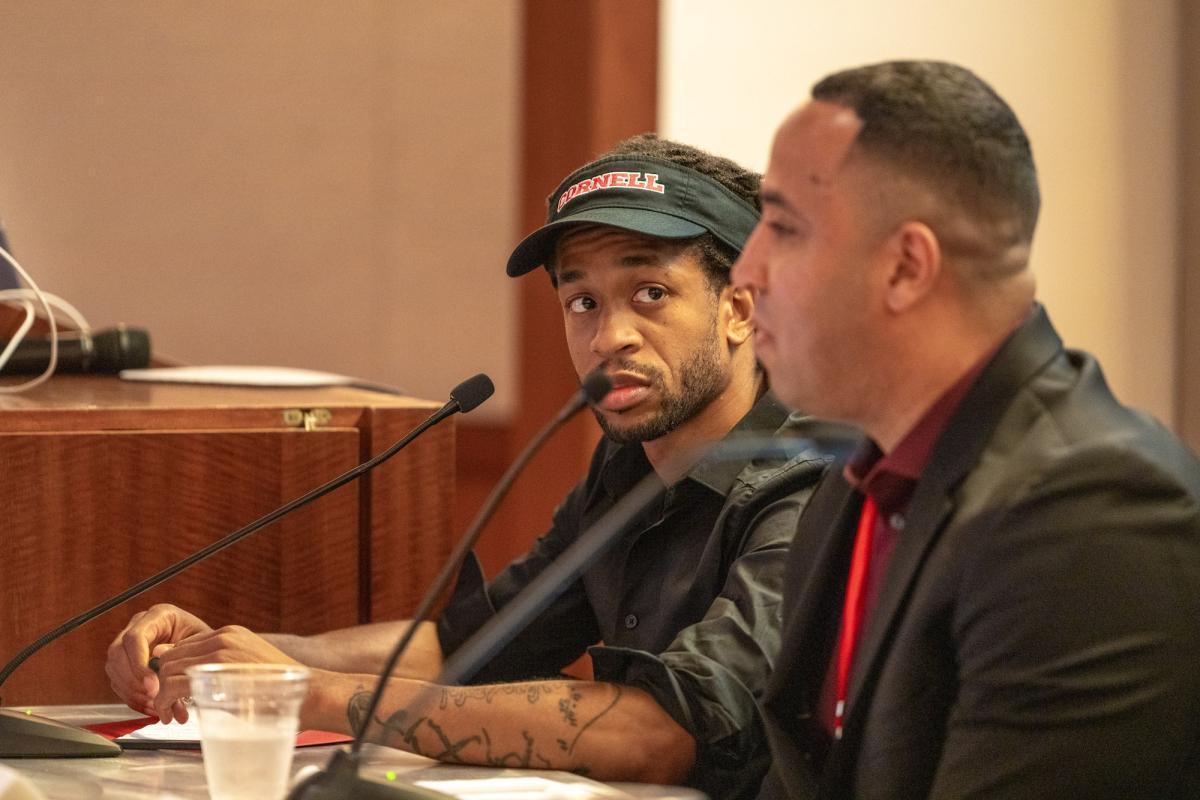
Symposium on Baccalaureate Education in Prison
June 15 - 17, 2023
Education is a potent catalyst for personal transformation and societal progress, yet incarcerated individuals have long faced barriers to accessing quality education. Recognizing the transformative potential of higher learning, specifically for justice-impacted populations, Cornell University organized the Cornell Prison Education Symposium in June at the Statler Hotel’s Amphitheatre.
What to do about prison censorship? What role should colleges/universities take in reentry? The symposium brought together over 100 scholars and alumni to ask such pertinent questions, find actionable answers, and ultimately inform Cornell's proposed bachelor's degree offerings in prisons. The symposium also convened panelists with first-hand experiences of prison education programs.
"Experts from the field such as Jodi Anderson, a recent graduate of Stanford University's Graduate School of Education, were generous to share their experience and insights into what it takes to succeed in offering high quality college programming in prison and beyond,” said Rob Scott, executive director of Cornell’s Prison Education Program (CPEP).
Anderson Jr., graduated from the Cornell Prison Education Program in 2016, before earning a Bachelor's and Master's degree from Stanford University. Now serving as the Director of Tech Innovation at Cornell ILR's Criminal Justice & Employment Initiative, Anderson Jr. focuses on integrating technology to expand opportunities for justice-involved individuals.
“The whole individual needs to be taken into consideration when establishing the foundation of a B.A. program,” said Anderson Jr. “That includes how to best use that degree or training to advance their lives so that they can participate in the formal economy.”

Elias Beltran and Darnell Epps also shared their achievements of receiving a college education while incarcerated and subsequently pursuing advanced degrees at leading academic institutions.
Beltran's journey took him from obtaining a bachelor's degree from Bard College while incarcerated to pursuing doctorate at Cornell University. Beltran’s academic pursuits are a testament to the transformative impact of education within the prison system, empowering individuals to overcome obstacles and excel both academically and professionally.
Epps embarked on his higher education odyssey through the Cornell Prison Education Program, with his efforts earning him a bachelor's degree upon release. Today, he is the co-founder and entrepreneur-in-residence at Praxis and a Juris Doctor candidate at Yale University.
The symposium culminated on a forward-thinking note, focusing on the Education Justice Tracker™ (EJT). Engineered at Cornell, the EJT is a tool which leverages data scraping methodologies to aid Higher Education in Prison (HEP) initiatives in providing more effective services to students in incarceration.
The success of the symposium was no doubt thanks to the extremely dedicated attending organizations such as Bard Prison Initiative, Georgetown Prisons and Justice Initiative, NJ-STEP @ Rutgers University, Jail and Reentry Services Librarian @ San Francisco Public Library, Education Justice Project, University of Illinois, Hudson Link, University of Minnesota, University of Utah Prison Education Project.
“This symposium doesn’t represent just a singular point in time or a singular discussion about prison education,” said Anderson Jr. “Ensuring futures to justice-impacted individuals is a daily challenge, and it’s one that Cornell and so many other amazing institutions are committed to facing.”
